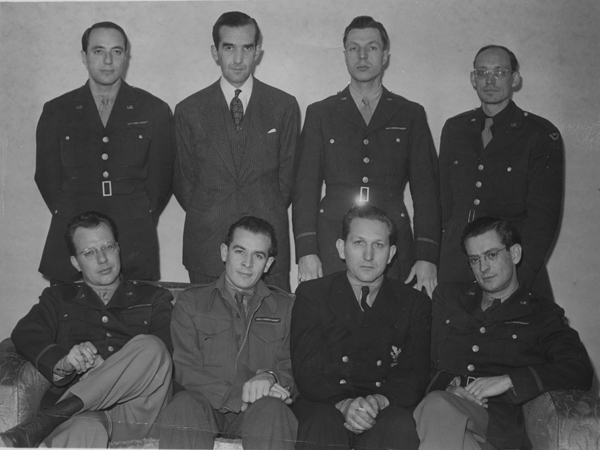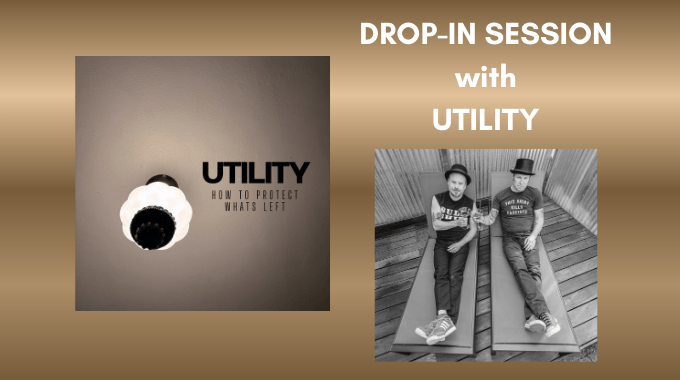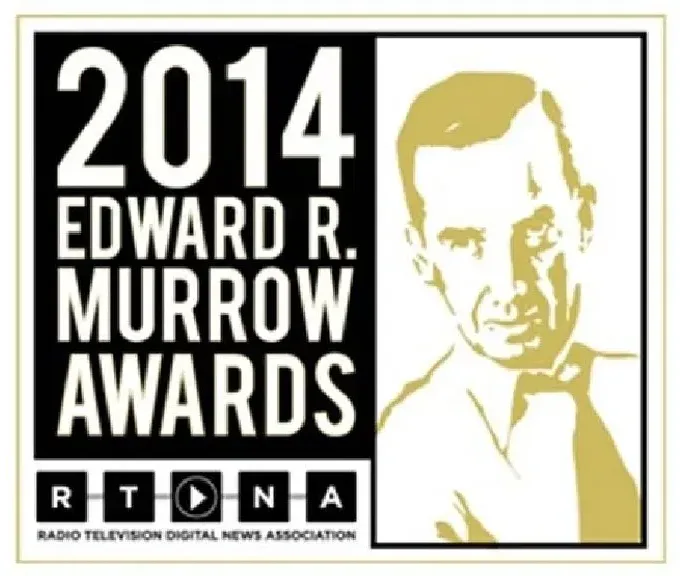I’m not old enough (thankfully) to have worked with Edward R. Murrow. My career in broadcasting began nearly 10 years after his untimely, yet understandable death from lung cancer (he smoked unfiltered Camels on and off the air!). Murrow was only two days beyond 57-years when he passed away in 1965.
The legendary journalist comes to mind for obvious reasons. PRP (that’s us) has been honored with two extraordinary awards in his name. On a personal level, I am thankful to be part of the PRP team, and proud of any contribution I may have made that helped the award-pickers bestow this extraordinary, and well-deserved honor on our group.
I’m also thankful that I’ve had a pre-PRP career, which gave me the opportunity to work closely with four of “Murrow’s Boys” (the semi-official name of Mr. Murrow’s protégés). These men made a big impression an a wide-eyed rookie journalist back in the 1970’s, when for reasons I still don’t understand, I was hired right out of college by ABC News in Washington, D.C.
The men you are about to “meet” were some of Murrow’s closest professional and personal associates who were the most incisive, determined and hard-living journalists I’ve had the pleasure of sharing air with. (Sorry, Mr. Murrow – ended that sentence with a preposition).

Edward R. Murrow (second from left, top row — only man not in uniform) and a group of his “Boys” during World War II. Bill Downs is seated far left, bottom row.
Dropping a few long-forgotten household names, using Murrow-inspired bullet points:
• Howard K. Smith, who co-anchored ABC’s Evening News with Harry Reasoner until Barbara Walters invaded his space. After Ms. Walters’ arrival in 1976 (the first woman co-anchor!), Smith was banished to the occasional commentary slot. Howard K. was definitely the most photogenic of the group, and probably had more television “face time” than Mr. Murrow ever did. He delivered the news with authority and compassion. Off the air, Howard K. Smith was one of the nicest human beings I’ve ever met.
• Robert Trout, a man who had most the most amazing voice I’ve ever heard in-person or on the radio. I only worked with him once, at the Gerald Ford “Victory” Party in 1976. (Jimmy Carter, of course, won that election). He was tall, elegant, fun, poised and polished. He could ad-lib about anything and sounded great doing it. Like Howard K. Smith, Robert Trout was a genuine, authentic and kind soul.
Soundclip of Robert Trout
• Edward P. Morgan, a brilliant writer and commentator who was relegated to the sidelines due to his sometimes-cantankerous personality and often too liberal (in management’s minds) opinions. Not the easiest working relationship I’ve ever had. Edward P. was not a big fan of input, and didn’t hesitate to cite his experience when it came to his rough content delivery, which usually exceeded his available airtime.
Which brings me to my absolute favorite “Murrow Boy” and probably the reason that I’m sitting in front of my keyboard at this moment.
• William Randall “Bill” Downs. Bill was one of the original “Murrow Boys” and probably the least charismatic, but most intriguing, at least to me. He met Mr. Murrow when he was a correspondent for UPI (United Press International, a print-only “wire service”) in London in 1942.
Murrow liked Downs’ writing style, and figured he might be a great addition to his CBS radio group in Europe. Then Murrow heard Bill Downs’ voice. The word “gravely” does not adequately describe how Downs sounded on the air. His penchant for deeply inhaling his ever-present cigarette, of course, added to the crustiness of his work in front of a microphone. Downs’ first two voiceover auditions for Murrow were unmitigated disasters. But, as the story goes, Murrow, never one to give up, sent Downs to describe the Piccadilly Circus. Despite the Downs’ sound, he loved the recorded account, and a long partnership began.
Downs became Murrow’s Man in Moscow during World War II covering, among other historic events, The Battle of Stalingrad. One of Downs’ other great achievements during the war was smuggling the score of Dmitri Shostakovich’s Eighth Symphony into the United States. CBS radio ended up becoming the first to broadcast the symphony in the Western Hemisphere. Downs also covered D-Day, and the surrender of both Germany and Japan. During the next several decades, there was a good chance Downs was somewhere with his “Reporter’s Notebook,” microphone and recorder when someone was making history.
The list of Bill Downs’ achievements in broadcast journalism is comparable to Edward R. Murrow’s. So why isn’t there a Bill Downs’ Award? I have no idea.
Sadly, when I met Bill Downs, he was an afterthought to the powers-that-were at ABC News. He was generally assigned stories that were not terribly exciting, or newsworthy. I worked with him fairly often because I was one of the new kids at the bureau.
Bill rarely appeared on television, because he fit the crass description sometimes used by broadcast decision-makers: “he has a great face for radio.” So – when I had the pleasure of covering nearly irrelevant stories with him, he was generally annoyed by his assignment, which made him more gruff than usual. And, Bill Downs was always gruff.
But, despite failing health and frustrating stories to cover, Bill Downs soldiered on, smoking and coughing (and what a cough it was!) until he retired.
I last worked with Bill Downs in the mid-1970’s. The story we covered, I’m certain, was not a Murrow Award winner. I do know, when he wasn’t talking or interviewing someone, a cigarette was in his hand or dangling from his mouth. He was probably thinking about the great American novel he was always wanted to write, and, as far as I know, never did.
Bill Downs lived six years longer than Edward R. Murrow. He passed away three months short of his 64th birthday. The cause of death, of course, was lung cancer.
I wish I had a photograph or recording of us working together. But, my personal archives have failed me in this case.
Thankfully, CBS News has a great collection. Here’s a link totally worth checking out if you’d like to find out more about Bill Downs, one of “Murrow’s Boys.”
- A Very New Pickathon in 2022 - August 13, 2022
- Pickathon returns to Pendarvis Farm! It’s not just the artists that’ll be new. - August 3, 2022
- July is BIPOC Mental Health Awareness Month (Black, Indigenous, Persons of Color) - July 14, 2022









Robert, how cool! Interesting story. You’re just full of surprises.